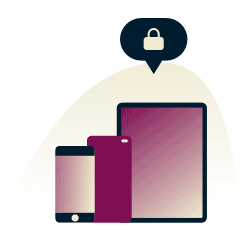The terms VPN and VPS are often confused because of the similarity of the initialisms, but they’re entirely different services. In this post, we’ll discuss the differences between a VPN and VPS, as well as the benefits of each.
What is a VPS?
A virtual private server (VPS) is a type of web-hosting service, which, as the name suggests, offers a virtual server environment to host your website or app. Traditionally, physical servers were used to store data and process information requests. However, as computing resources became more powerful, it became unnecessary for companies to purchase or rent an entire server for their needs.
Specifically, companies running only a website or two definitely didn’t require the resources that an entire server offered. A typical server, with multiple cores and high RAM, could be broken down into multiple virtual servers, each of which was powerful enough on its own to cater to the needs of several small businesses. That’s where the concept of virtual private servers came about—a VPS is a part of a server been separated out and dedicated to a paying customer.
Other than VPS hosting, users can choose cloud hosting, shared hosting, and managed hosting services. However, VPS hosting allows for scalability, as it’s easy to add more resources as and when your business needs it. Firms opting for VPS hosting also benefit from better performance and maintain more control over the hosting experience.
What is a VPN?
A virtual private network (VPN) is a different type of service. To start, it has nothing to do with web hosting. VPN providers (like ExpressVPN) replace your IP address with a shared one, which makes it harder for snoops or companies to identify you as you browse the internet. A VPN also gives you a secure, encrypted connection to the internet, preventing anyone from intercepting your online traffic.
A VPN also lets you use an IP address from different parts of the world. This helps if you’re in a country where there’s censorship, or if certain websites show you different content based on your location. VPNs unlock the free and open web, while keeping you safe in the process.
Read more: 14 top tips to protect your online privacy
